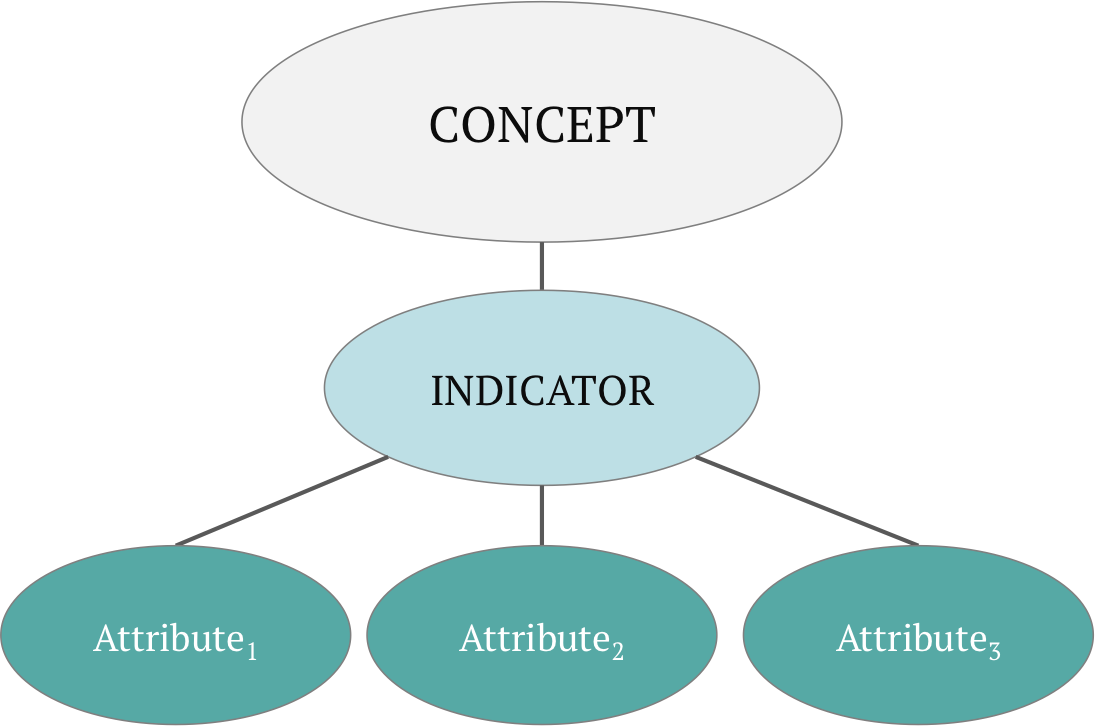The Levels of Conceptualization & Operationalization
Measurement is a broad subject area that spans many fields (e.g., education, psychology). Too often, however, people take a narrow view of measurement as being limited to the assignment of numbers to variables in a systematic way. But measurement is so much more than classifying data into categories (i.e., Nominal, Ordinal, Interval, Ratio). In this blog post, I want to take a step back and look at two topics that are often neglected but are critical to the measurement process: conceptualization and operationalization.
CONCEPTUALIZATION
A concept is an idea, image, thought, or feeling that describes a phenomenon in the social world. Concepts are often regarded as linguistic symbols that are used to refer to social phenomena because they tend to be abstract in nature and have multiple meanings. As a result, it is impossible to measure a concept without defining it. Conceptualization, then, is the process of defining and refining what a concept means for the purposes of research. This process involves identifying the different meanings (i.e., dimensions) a concept may have and determining what evidence (i.e., indicators) you might observe—either directly or indirectly— to establish the presence or absence of a concept. During the conceptualization process, it is also most often necessary to consult the literature that discusses a particular concept and describes how the concept has been defined in the past.
For example, let us consider the concept of social class. What ideas or images come to mind when you hear the word social class? Of course, there is no single, objective definition of social class. In fact, this applies to any concept. Nonetheless, it is important to develop a clear and concise definition of a concept you intend to study. After conducting a thorough review of the literature, you may find that social class can be defined in terms of one’s income, education, or occupation. Here, the concept of social class has three distinct dimensions. If you discover that a concept you are interested in studying has more than one dimension, carefully think about the advantages and disadvantages of using one dimension over the other. Similarly, you may decide that adequately defining the concept requires identifying and measuring its many dimensions. In practice, you would want to consider which dimension(s) of the concept is most appropriate for your research objectives.
For this example, say you decide to define social class in terms of income. Specifically, you develop the following conceptual definition:
The concept of social class is defined as the total amount of monetary income earned by an individual from all sources in a given period.
While it is hard to determine whether a conceptual definition is ‘good’ or not, I use the following criteria to judge the quality of a conceptual definition:
Does the definition clearly describe what indicator(s) of a concept will be measured?
Does the definition provide some indication that the indicator has more than one value or attribute (i.e., varies)?
Does the definition specify the unit of analysis to which the concept applies?
How does our conceptual definition of social class measure up? First, the definition clearly describes what indicator of social class will be measured, namely income. Second, the words “amount of” and “monetary” signify that income will be measured in monetary value, and the variation in income will reflect differences in monetary value. Finally, the words “by an individual” state that individuals are the unit of analysis.
But is it enough to identify and define an indicator that represents a concept? No, you must devise a strategy for measuring the indicator.
OPERATIONALIZATION
Operationalization is a critical step in the measurement process. This process entails defining the exact procedures or operations that will be used to measure an indicator. Importantly, through operationalization, the attributes (e.g., qualitative characteristics or numerical ordering) of an indicator you intend to measure and the nature of the relationship between those attributes will be identified.
Following our example in the previous section, how might you choose to operationalize income?
If you were conducting an interview, you might operationalize income in the form of a question and ask interview participants to self-report how much they made last year:
During the past 12 months, what was the total amount of income you earned from all sources before taxes or other deductions?
Similarly, if you were conducting a survey, you might operationalize income using the same question but ask survey participants to select a response from a pre-determined set of categories:
During the past 12 months, what was the total amount of income you earned from all sources before taxes or other deductions?
o Less than $10,999
o $10,000 to $19,999
o $20,000 to $29,999
o $30,000 to $39,999
o $40,000 to $49,999
o $50,000 to $59,999
o $60,000 to $69,999
o $70,000 to $79,999
o $80,000 to $89,999
o $90,000 to $99,999
o $100,000 or more
As you can see, the two questions operationalize income in two distinct ways and will ultimately produce data with different levels of precision (i.e., levels of measurement). In the first, participants can provide any dollar amount, while in the second, they are limited to denoting what income bracket they are in. The key objective during this stage is to devise a strategy for measuring the indicator of interest that will produce the most meaningful results while simultaneously allowing you to reach your research objectives.
I hope this post has shown why conceptualization and operationalization are integral to the measurement process. Through conceptualization and operationalization, fuzzy concepts become concrete, measurable indicators. Further, by developing concrete definitions of the concepts you intend to study and devising a strategy for measuring those concepts, you decrease the likelihood that the data you collect will be meaningless or misinterpreted by others and increase the likelihood that future researchers will be able to replicate your work.

